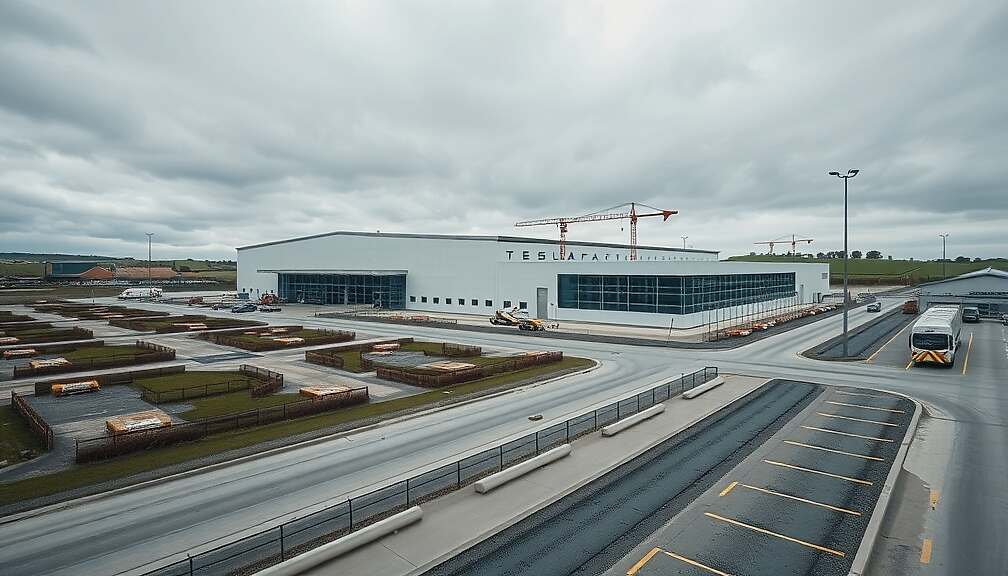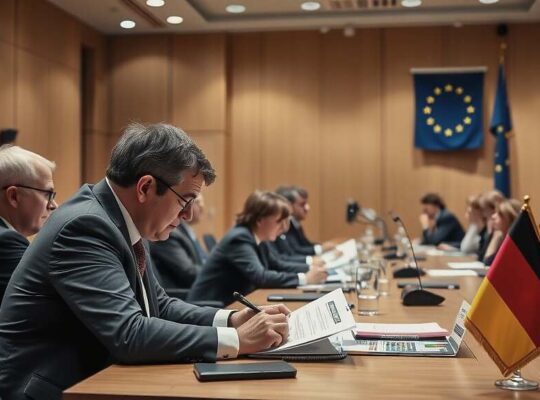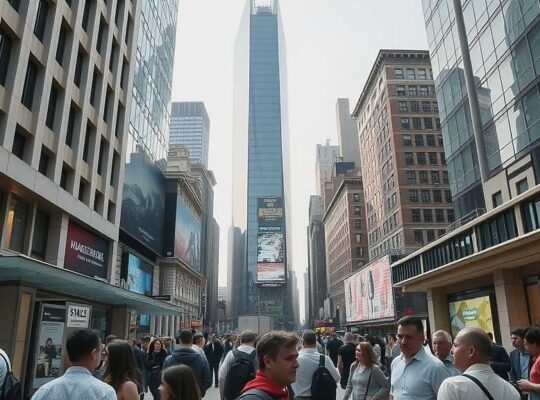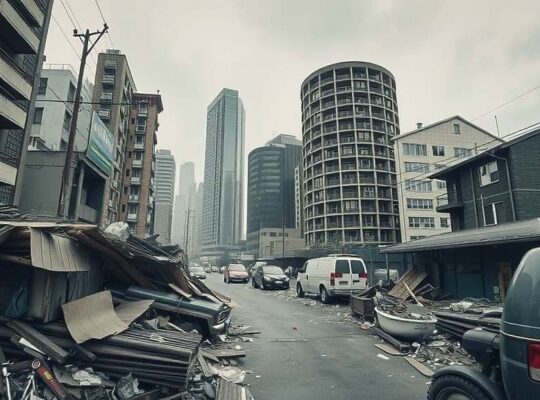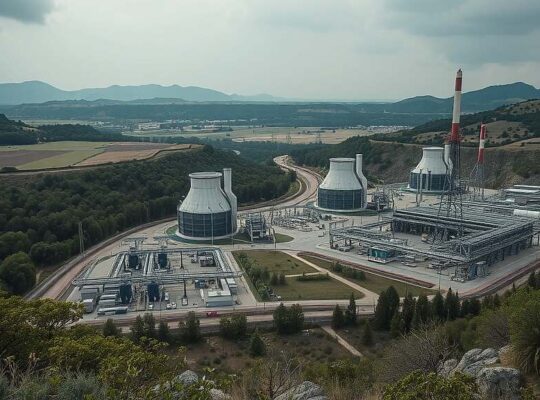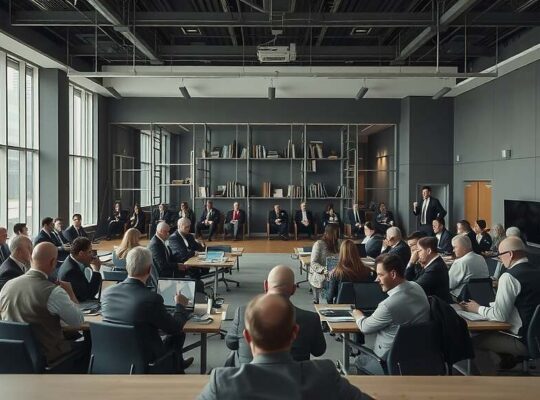Expansion plans for Tesla’s Gigafactory in Grünheide, Brandenburg, appear increasingly uncertain, according to a recent report. Despite initial ambitions to reach a production capacity of one million vehicles annually, Tesla has yet to submit further permit applications for the expansion, including those related to the long-promised on-site battery cell production. While the state environmental agency granted the first of three partial approvals last October, progress appears stalled.
Public sector investment in infrastructure supporting the expansion already totals several hundred million euros, including upgrades to roads and a new rail connection slated for completion in 2026. Deutsche Bahn estimates the cost of the rail connection alone at 244 million euros.
The original expansion plans were predicated on the creation of up to 40,000 jobs. However, current permit filings indicate Tesla now anticipates a workforce of only 22,500 employees even with the expansion, considerably lower than initially projected. The facility currently employs around 11,000 people.
Current production at the Grünheide site is reportedly significantly below its potential capacity of 500,000 vehicles per year. Plant Manager André Thierig stated the factory is ramping up production to exceed 5,000 vehicles per week, though operating at double that rate is technically possible. He attributed the current output to aligning production with market demand.
Thierig expressed confidence in the factory’s performance, describing it as “very good and stable” and highlighting Germany as an “very attractive” location for Tesla. He maintains the expansion is proceeding according to plan, with no delays, but conceded it is contingent upon a significant increase in demand for electric vehicles and that the approved permits represent an “option” rather than a guarantee.
Failure to realize the full expansion would represent a setback for the Brandenburg state government, which has actively supported Tesla’s interests.
Former State Environment Minister Axel Vogel, indicated that the ministry created new positions specifically to handle the Gigafactory project, while other applications were left unprocessed. The expansion quickly became the dominant issue within the state government, initially driven by considerable pressure from Tesla to expedite the permitting process. This pressure has reportedly diminished with the prospect of a downturn in sales.


